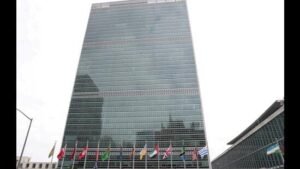
A cherished romanticism of the Marxist political doctrine is the idea of ’people’s democracy’. The Chinese party-State has resolved this inherent dialecticism/paradox of its polity through the adoption of the ‘united front’ strategy whereby China’s eight minor political parties co-exist under the absolute leadership of the Chinese Communist Party (CCP). This concept of co-option or political participation, as envisioned in China’s Marxist–Leninist system, is not limited to the minor political parties but also includes prominent groups such as business leaders and overseas Chinese, among others. The party institution overseeing this arrangement is the Chinese People’s Political Consultative Conference (CPPCC). Therefore, when this body begins to garner traction in Xi Jinping’s anti-corruption campaign, it makes for an interesting development.

All the eight minor parties within this system pre-date the establishment of the People’s Republic of China, and no new political formation has been allowed to emerge since then. Interestingly, one such attempt was scuttled by the CCP as recently as 2013 in the form of the Zhi Xian Party. The Zhi Xian Party was established by the followers of disgraced Chinese leader, Bo Xilai, who allegedly attempted a coup against Xi Jinping. Crucially, army and police personnel are not allowed to join the minor political parties in order to avoid any potential threats to the CCP’s dominance of the political system.
Although characterized as merely an advisory body, the CPPCC is headed by a member of the Politburo Standing Committee (PBSC). At present, it is chaired by Wang Huning, who is the second party theoretician to serve on the PBSC after Chen Boda under Mao Tse Tung. This institutional structure is replicated across China, with each province having its own provincial CPPCC committee.
Since the 20th Party Congress, a total of 55 cadres serving at the vice-ministerial level have come under the anti-corruption net till May this year. This puts the number of high-ranking cadre or the “tigers” in the anti-corruption lexicon at one of the highest ever. Out of this, ten were serving as the vice-chairman of the provincial-level CPPCC, and six were former vice-chairmen. Furthermore, at least three fallen officials had connections with the National Committee of the CPPCC, including two former and one current member. Moreover, among the seven ministerial-level cadre against whom corruption proceedings have been initiated, four had association with the CPPCC.
Among these disgraced officials is the now former executive vice-chairman of the central committee of the Taiwan Democratic Self Government League (TDSL), Li Yuefeng. TDSL is one of the two Taiwan-focused minor parties and is mainly composed of people of Taiwanese heritage who survived the February 28 incident. The TDSL, along with the Revolutionary Committee of the Chinese Kuomintang, is engaged in cultivating ties with sections of the Taiwanese elite that support the CCP’s “unification” agenda.
According to his official bio-data, Li is described as a native of the Zhongli district of Taiwan. He served on the 11th and 12th national committees of the CPPCC, and has been charged with “serious duty-related violations”. While these charges at best qualify as regular within the anti-corruption campaign parlance, targeting a high-ranking member of a minor party engaged in the CCP’s Taiwan politics is noteworthy.
In addition to the anti-corruption campaign, the CPPCC has witnessed certain changes in its composition as well. Since last year, several of China’s tech giants have stepped down from their delegate roles in the CPPCC. These include Robin Li Yanhong, co-founder and CEO of internet search and Artificial Intelligence platform Baidu, William Ding Lei, founder and CEO of video gaming firm NetEase, and Wang Xiaochuan, founder of search engine Sogou. Since the CPPCC delegates are decided by the CCP, the absence of China’s leading business names from the consultative conference assumes significance.
Since its inception in 2012, the anti-corruption campaign has ensnared individuals or sectors that either had a direct bearing upon the political security of the CCP or could potentially undermine Xi’s political designs. These included the military and the domestic security apparatus among others. Since the CPPCC cannot be placed in this category, it is difficult at the moment to underscore the strategic significance of it becoming a target within the anti-corruption campaign. Furthermore, it would be premature to link developments within this body to any major upheavals in China’s domestic politics at this stage. However, the arcane nature of Communist regimes dictates that every institution is observed studiously in order to discern patterns that could provide clues to the strategic trajectories of their polities.
Shikha Aggarwal is a non-resident fellow with National Chengchi University.The views expressed are personal




